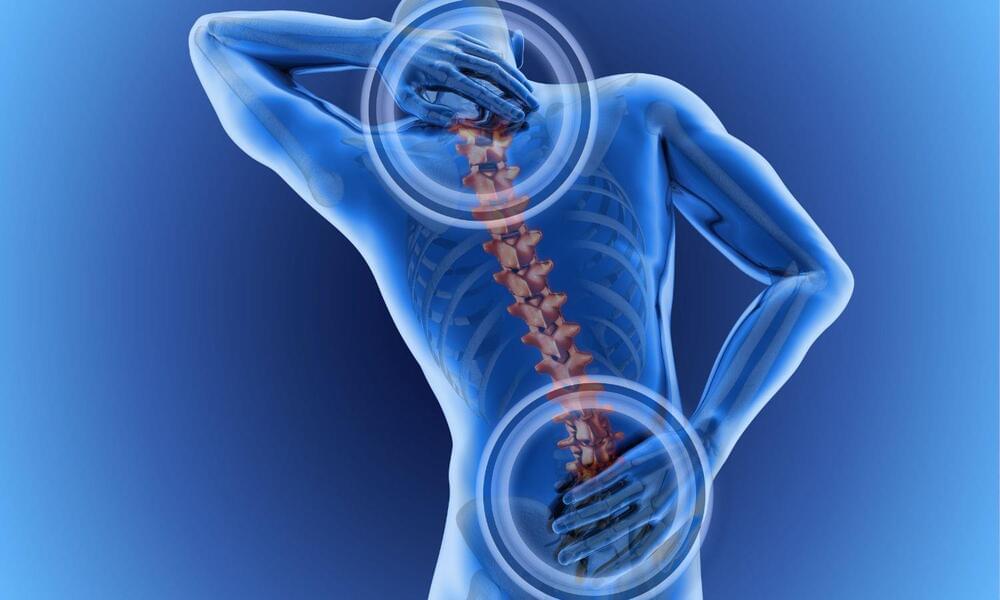A new method allows large quantities of muscle stem cells to be safely obtained in cell culture. This provides a potential for treating patients with muscle diseases – and for those who would like to eat meat, but don’t want to kill animals.


Elon Musk delves into the groundbreaking potential of Neuralink, a revolutionary venture aimed at interfacing with the human brain to tackle an array of brain-related disorders. Musk envisions a future where Neuralink’s advancements lead to the resolution of conditions like autism, schizophrenia, memory loss, and even spinal cord injuries.
Elon Musk discusses the transformative power of Neuralink, highlighting its role in restoring motor control after spinal cord injuries, revitalizing brain function post-stroke, and combating genetically or trauma-induced brain diseases. Musk’s compelling insights reveal how interfacing with neurons at an intricate level can pave the way for repairing and enhancing brain circuits using cutting-edge technology.
Discover the three-layer framework Musk envisions: the primary layer akin to the limbic system, the more intelligent cortex as the secondary layer, and the potential tertiary layer where digital superintelligence might exist. Musk’s thought-provoking perspective raises optimism about the coexistence of a digital superintelligence with the human brain, fostering a harmonious relationship between these layers of consciousness.
Elon Musk emphasises the urgency of Neuralink’s mission, stressing the importance of developing a human brain interface before the advent of digital superintelligence and the elusive singularity. By doing so, he believes we can mitigate existential risks and ensure a stable future for humanity and consciousness as we navigate the uncharted territories of technological evolution.
For more insights, visit EM360tech.com:
https://em360tech.com/tech-news.
#AI #superintelligence #machinelearning.

Researchers have found in a new study that statin use was associated with significant reduction in the risk of osteoporotic fractures among general older population.
Research author Dr Seo said, “Statin users experienced a decline in risk of major osteoporotic fractures, hip fractures and vertebral fractures.”
The study has been published in Osteoporosis International entitled Age-and dose-dependent effect of statin use on the risk of osteoporotic fracture in older adults.

Researchers show it’s possible to make photons that cross paths interact, paving the way for technology breakthroughs.
A research team at the Advanced Science Research Center at the CUNY Graduate Center (CUNY ASRC) has demonstrated that it is possible to manipulate photons so that they can collide, interacting in new ways as they cross paths. Detailed in the journal Nature Physics.
As the name implies, Nature Physics is a peer-reviewed, scientific journal covering physics and is published by Nature Research. It was first published in October 2005 and its monthly coverage includes articles, letters, reviews, research highlights, news and views, commentaries, book reviews, and correspondence.
Seattle-based Integrate says it has raised $3.4 million in funding and secured a $1.25 million contract from the U.S. Space Force to boost its program management software platform into a higher orbit.
The year-old startup has also brought Firefly Aerospace on board as a customer.
“It has been a busy and exhilarating month,” John Conafay, CEO and co-founder of Integrate, said today in a news release.


The dome is varnished matte black and shaped somewhere between an oversized eco-chic lampshade and a fifth grader’s diorama of a volcano—all pudgy curves and asymmetric slopes. Underneath sits a small table, almost a stool, made of the same amorphous material. The table is fitted with a brass fixture loosely reminiscent of a guitar but (so the adjacent panel tells me) is actually a replica of the 17th-century microscope designed by Dutch scientist Antonie van Leeuwenhoek—a nod to the father of microscopy.
From a speaker concealed in the dome, a voice intones:
In the midst of a global pandemic, on the eve of an irreversible climate emergency, and in the early, thrilling decades of a biotech revolution, the human race began to question its relationship to the natural world. For many years, scientists believed life to be a competition, one that humanity must win… But as biologists learned more about living systems, it became undeniable that interdependence was key to understanding life on Earth.
Trinity’s quantum physicists in collaboration with IBM Dublin have successfully simulated super diffusion in a system of interacting quantum particles on a quantum computer.
This is the first step in doing highly challenging quantum transport calculations on quantum hardware and, as the hardware improves over time, such work promises to shed new light in condensed matter physics and materials science.
The work is one of the first outputs of the TCD-IBM predoctoral scholarship programwhich was recently established where IBM hires Ph.D. students as employees while being co-supervised at Trinity. The paper was published recently in npj Quantum Information.

One of the biggest challenges of researching organs in vivo (or as part of an entire, living organism) is that there is little room for error. Finding treatment for a patient’s kidney, intestine, heart, or any organ must be done carefully; if anything goes wrong, it’s the person’s life on the line. Enter the organoid.
First fully realized and developed in the early 2010s, an organoid is a miniaturized and simplified version of an organ produced in vitro (or outside the entire organism: on their own). The organoid has significant use for researchers as it can be grown, researched, then recreated if any treatments cause tissue harm. Isolating the treatments to an in vitro organ gives researchers flexibility; they can focus entirely on targeted treatments without worrying about harming a living patient.
One of the most significant scientific advances of the last ten years, organoids have revolutionized research across several fields, and continue to grow more advanced and helpful year over year. So, what are these microscopic powerhouses, exactly?
The Maui fire. What happened. Many are pointing fingers at Hawian electric with many videos of downed powerlines. There is video taken at the Maui Bird Conservation Center in Makawao appears to show a power pole faulting just before 11 p.m. If Hawai electric turned of power when the winds were very strong there might have been a different scenario. Hundreds of kilometers to the south, Hurricane Dora was moving across the Pacific. On Maui, the wind blew, stronger than is usual for hurricanes on the island. The power then fails. Maui’s first reported wildfire last week may have been caused by damaged power lines, according to newly released research conducted by a power monitoring company. Bob… More.
Videos showing downed power lines apparently sparking some of the early blazes in Maui have become key evidence in search for cause.
This Olinda Fire footage captured by Maui Bird Conservation Center (MBCC) security camera shows the flash when a tree falls on a nearby power line. When the camera turns itself back on, powered by a back-up generator, the forest is ablaze.
Watch more videos on Independent TV: https://www.independent.co.uk/tv/editors-pick.
About The Independent: